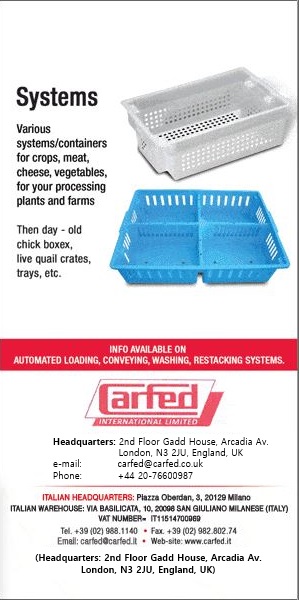Bühler technology is enabling the world’s largest fig grower to double its processing capacity to 20,000lbs per hour and reduce increasingly expensive costs associated with sorting, by up to 90 per cent
The SORTEX F sorter is helping The Specialty Crop Company to provide their customers with dried figs that are free from damage and foreign material, including wood, rocks, puncture vines, bird pecks, sunburn and mold.
Kevin and Diane Herman founded the California-based business in 1989 and although figs are their main product, they successfully grow kiwi, persimmons and pomegranates.
Speciality Crop’s ranches are located in California’s Madera and Merced counties. About 5,500 tonnes of figs a year are processed at Specialty Crop’s Madera plant, consisting of five main types such as Mission, Conadria, Sierra, Tiger and Brown Turkey, and a fifth of the crop is grown organically. About 90 per cent of Speciality Crop’s dried whole figs are sold to leading US buyers.
Superior FM and defect detection
Food safety is extremely important for Specialty Crop, as is quality. Kevin explained,
“Our figs are harvested from the field and brought straight onto the cleaning line. The contamination rate is about 15-20 per cent, three quarters of which is because of foreign materials (FM) and a quarter due to defects. Harvesting entails gathering figs off the orchard floor, so a lot of FM is brought into the plant with the figs. FM include small pieces of wood, rocks, sticks and the barbed seeds from puncture vines (tribulus terrestris), that can grow in orchards,” Kevin said.
“The figs can also be imperfect. For example, they can be smashed or have dark spots, or blemishes caused by bird pecks or weather-induced mold – or even sunburn in hotter years. After mechanically cleaning the product, the contamination entering the sorter is around 8-10 per cent,” Kevin added.
Quality assurance – vastly reduced labour costs
Quality control requirements can vary from one fig variety to another. “If we’re dealing with whole figs, going into a consumer package directly, they must look perfect. For paste and industrial use, tolerances for defects are greater, since they can be ground up and still used. FM isn’t allowed – neither is mold,” Kevin noted.
“The sorting criteria are easy to set up on the SORTEX F and the sensitivities settings can be adjusted so that I can easily meet my customers’ specifications. Besides this, we can now do it with three hand sorters instead of needing 24. Before we got the sorter, some figs with defects were getting through our handpicking tables. But not anymore, so customer complaints are down,” Kevin expressed.
Double capacity – peerless customer service
Kevin further added, “We are always looking to improve our processes with reliable, innovative technology that can bring benefits to us and our customers. And we wouldn’t be without the SORTEX F, as it has enabled us to achieve far higher yields, with much less rejection of good product, while delivering a greater accept quality.”
Stephen Jacobs, business development manager for North America at Bühler Group, commented, “The advanced camera technology used on the SORTEX F can reliably differentiate between good and bad product, enabling problematic FM and defective product to be accurately removed.”
“Furthermore, Specialty Crop’s choice to invest in the larger F2 model has enabled them to sort 20,000lbs (9,000kgs) of figs per hour – twice what they were able to sort previously.”









